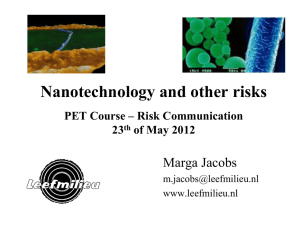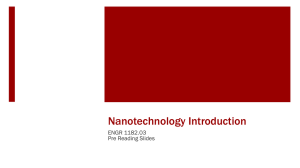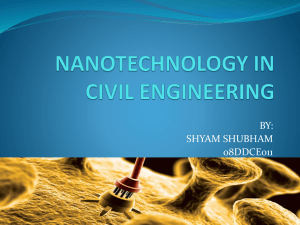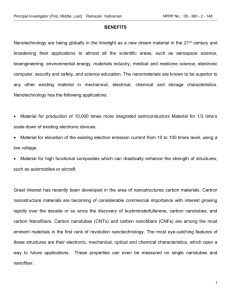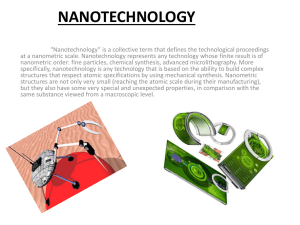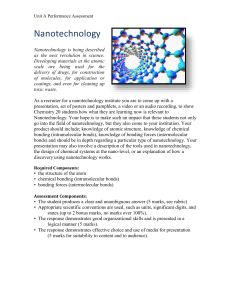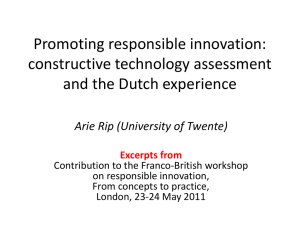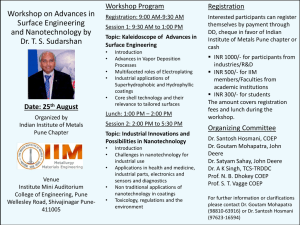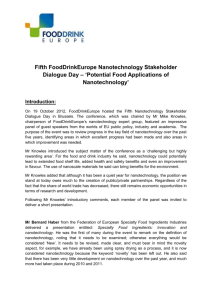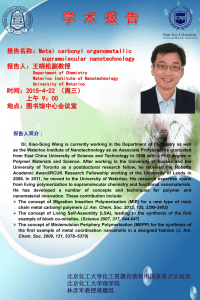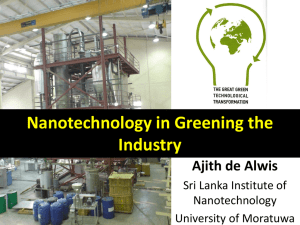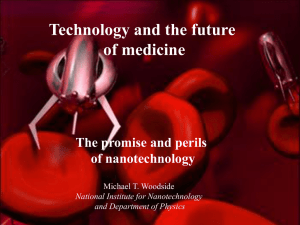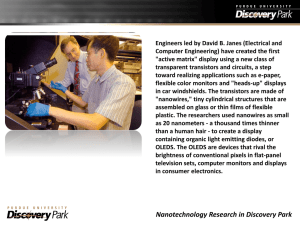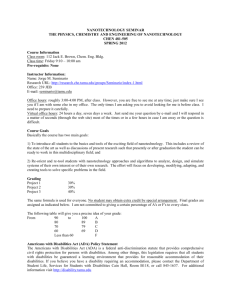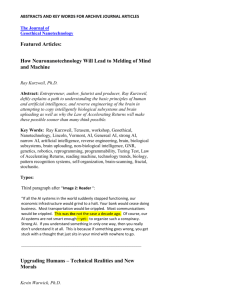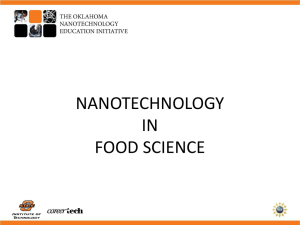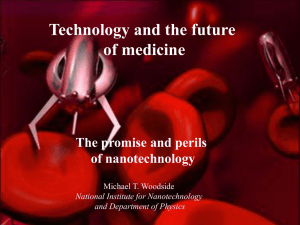A Future Green Technology
advertisement
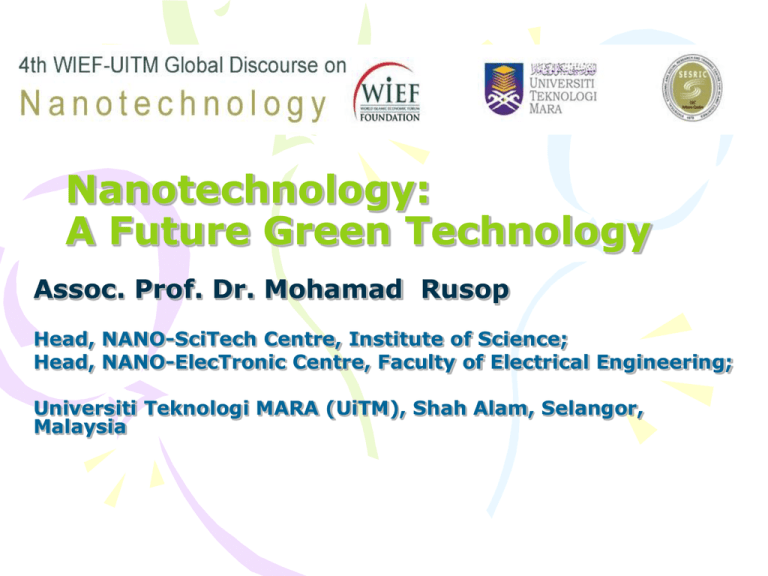
Nanotechnology: A Future Green Technology Assoc. Prof. Dr. Mohamad Rusop Head, NANO-SciTech Centre, Institute of Science; Head, NANO-ElecTronic Centre, Faculty of Electrical Engineering; Universiti Teknologi MARA (UiTM), Shah Alam, Selangor, Malaysia Nanotechnology: A Future Green Technology What? / Why? • Science of the extremely tiny • Control of matter on the atomic and molecular scale below 100 nm • Fabrication of device size within below 100 nm • Field of applied science, technology, engineering, etc • Field of pharmacy, medical, health, etc • Field of safety, economy, law, etc • Field of “A Future Green Technology” Nanotechnology: A Future Green Technology How to Prepare? There are 3 approaches of nanotechnology to prepare the nanomaterial and its applications: 1) Top-Down 2) Bottom-up Traditional engineering techniques such as machining and etching are used at very small scales, without atomic level control. Structures are built up atom by atom which assembles themselves chemically using principles of molecular recognition. 3) 1+2 Nanotechnology: A Future Green Technology History? • 1959 - Richard Feynmen gave a historical speech, “There’s Plenty of Room at the Bottom” that made people to start thinking seriously about the possibilities of nanotechnology • 1965 - Gordon E. Moore, “the number of components in integrated circuits should double every year” • 1970 - Leo Esaki pioneered the technology on manmade semiconductor structure such as superlattices, showing unknown properties • 1974 - Norio Taniguchi in his paper “On the Basic Concept of Nanotechnology” to describe the ultrafine machining of matter • 1975 - Various concept based on manipulation of metal in nano level was proposed, such as quantum dots, containers are able to confine one or more electrons • 1981 - Gerd Binnig and Heinrich Rohrer invent the scanning tunneling microscope (STM), a device that can create images of the nano world Nanotechnology: A Future Green Technology History? • 1985 - Prof. Harold Kroto, Richard Smalley and Robert Curl discover fullerenes, football-shaped molecules made up of sixty carbon atoms. • 1986 - Eric Drexler proposed bottom-up nanotechnology with the publication of his book, “Engine of Creation”. • 1989 - Don Eigler, a physicict at IBM Research Division’s Zurich Laboratory, succeeds in manipulating atoms using STM, providing a concrete demonstration of how atoms could be assembled. • 1991 - Prof. Sumio Iijima from Meiji University (Japan) and NEC research fellow discovers carbon nanotubes (CNTs), hollow tubes of several nanometers derived from graphite sheets. • 2003 - Prof. Tetsuo Soga from NITech (Japan) has synthesized CNTs from Camphor Oil. • 2005 - M. RUSOP, etal. from UiTM (Malaysia) has synthesized CNTs from Palm Oil and Coconut Oil. Nanotechnology: A Future Green Technology How it Contribute to Green Technology? • CNTs from Palm Oil and Waste Oil Palm – Collaboration with Sime Darby Plantation Bhd (RM2.32 Millions Research Grant) • Olive Oil for Cosmetic – To submit research proposal to Algerian Government • Cosmetic - “Pegaga Herb” (Centella asiatica) • Lubricant Oil - Collaboration with Sukimi Lube Co. Ltd • Motorcar/Plane - Exhaust/Speed/Decoration/Accessory • Road/Traffic - Exhaust/Safety/Slide/Mobility • Medicine - CNTs/Nanomaterial/Speed/Control release • Food - Taste/Extracted Paste (Tom Yam) • Fertilizer - Nanomaterial/Control release • Water – Filtering system/PH/Cleanliness • Building - Thermal Comfort/Material/Decoration/Accessory • Electronic Device – Solar Cell, LED, FET, NEMS Nanotechnology: A Future Green Technology For Sure, Nanotechnology Will Help The Country Economic Growth Thank You
